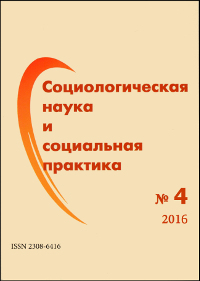Государство как стратегический субъект развития российской системы образования
Аннотация
Литература
Дюркгейм Э. Социология и теория познания // Хрестоматия по истории психологии: период открытого кризиса (нач. 10-х гг. - середина 30-х гг. XX в.): учеб. пособие для вузов / Под ред. П. Я. Гальперина, А. Н. Ждан. - М.: МГУ, 1980. - С. 273 -297.
Киселёв А. С. Управленческие задачи государства в образовании (социологический анализ). [2013] [Электронный ресурс]: Российский комитет программы ЮНЕСКО «Информация для всех». URL: http://www.ifap.ru/librarv/book155.pdf (дата обращения: 15.09.2016).
Кусжанова А. Ж. Государство и образование. [Электронный ресурс]: CREDO NEW. Теоретический журнал. - 1997. - № 5. URL: http://credonew.ru/content/ view/57/22/ (дата обращения: 15.09.2016).
Старцев Я. Ю. Система образования как объект государственной политики // Вопросы политологии и социологии. - 2012.- Вып. 1 (2). - С. 74-86.
Тощенко Ж. Т. Фантомы российского общества. - М.: Центр социального прогнозирования и маркетинга, 2015. - 668 с.








 Издатель: Федеральное государственное бюджетное учреждение науки
Издатель: Федеральное государственное бюджетное учреждение науки